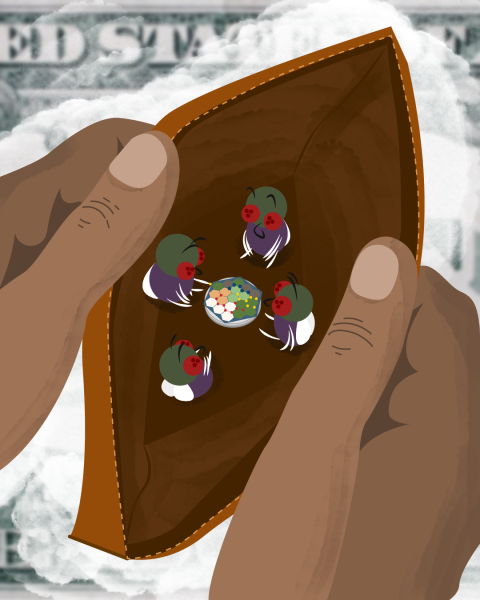Caleb’s Concepts: A good life, the Carnegie way
September 18, 2020
Cato Institute suggests younger generations will resent the rich because the U.S.’s existing wealth inequality seems to be getting worse. At App State, 57% of students take out a federal loan and the average student graduates $23,105 in debt. It takes years for students to pay off their loans because the average starting salary at App State is $34,000. Clearly, the deck is stacked against students.
Yes, inequality is a problem and many people are born into immediate wealth. However, many of the richest people in American history did not come from generational wealth.
Take Andrew Carnegie, a poor Scottish immigrant born in poverty that became a billionaire. Sounds like a fantasy? Nope. Pass the popcorn, Disney. This is a real story!
Born in 1835, Carnegie’s story is one of hard work and perseverance. Without two cents to his name and little formal education, Carnegie conquered life’s obstacles. How did he do this? Hard work.
In 1848, Carnegie’s family immigrated to the U.S. from Scotland. Upon landing, Carnegie worked at a factory, where he made a whopping $1.20 which amounts to $37.58 today. The next year, Carnegie landed a job as a telegraph manager and received a promotion as a telegraph operator two years later. People noticed his work ethic and promoted Carnegie to a railroad superintendent in 1859.
During this time Carnegie made a series of smart investments quitting the railroad in 1865 to develop the Keystone Bridge Company further. This company spearheaded steelmaking innovations, increasing the steelmaking industry’s efficiency. By 1889, Carnegie and Carnegie Steel Company held a monopoly over steel production, bringing in revenues while lowering the cost of steel. Though considered a “robber baron,” someone who becomes rich unethically, critical examination of Carnegie’s life shows this couldn’t be further from the truth. Carnegie was always charitable, remarking “your first third of life goes to learning, second third earning and the final third to giving it all away.”
So what’s the point? Why does a dead billionaire matter? Because Carnegie showed that where you come from doesn’t matter. He’s not alone: John Rockefeller cannot claim he inherited his wealth. Rather, he worked hard and created a successful company to become one of the richest people ever. Although it’s suspected Jeff Bezos will usurp that throne.
Yet, this history lesson doesn’t prove why we should care. Carnegie, Rockefeller and Bezos caused drastic wealth inequality and can be blamed for the inequalities we face today. Not so fast though. Long-term economic growth suggests that prior to the 1500s, everyone was poor. Peasants had nothing and lived and died where they were born. According to Our World in Data, capital accumulation of people in 2020 shows higher life expectancy, less hunger and more entertainment mediums. Sure, economic inequality is a problem. It isn’t a secret that Bezos lives better than fast-food workers. However, a critical examination of historical data suggests that the average GDP per capita is significantly higher than it was before the 16th century. Why should some live better than others on the backs of inheriting wealth?
Immediate wealth inheritance is a short-run problem. Long-term examination of wealth inheritance shows that wealth decreases in families over time. Research found that the number of Forbes 400, the 400 wealthiest people in the U.S., members who inherited wealth fell from 60% in 1982 to 32% in 2012. Furthermore, 20% of the Forbes 400 grew up poor in 2012, the same rate as in 1982. Additionally, research from the Peterson Institute for International Economics found that only three out of every 10 billionaires inherited their wealth compared to over half in Europe.
Yes, everyone should have the same opportunities for success, but unfortunately, that isn’t reality. There are differences between people: some are smarter, others are more privileged and some are physically gifted. That shouldn’t stop us from striving to become better than what our system tells us to be. We can’t let our limitations stop us from reaching full potential.
Did Carnegie stop working because he came from poverty? No. He aspired to become better than the $1.20 a week he was paid and gave a blueprint for his success.Yes, some will have it easier than others, but that doesn’t mean we should stop working, some will have to work twice as hard to reach the promised land. Carnegie and 20% of Forbes 400 members are testimony to that. Never quit and work harder than everyone else.













